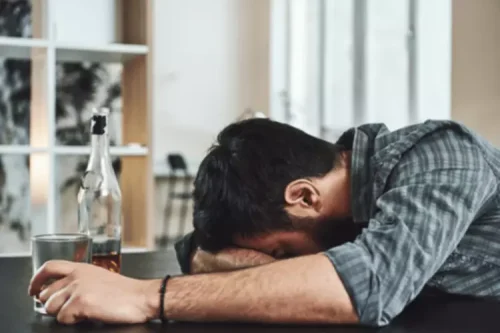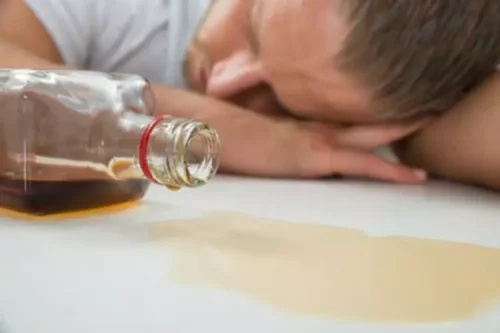Alcohol Use and Anxiety: Diagnostic and Management Issues American Journal of Psychiatry



The historical roots of this treatment modality largely can be traced back to the development of Alcoholics Anonymous (AA) in Akron, Ohio, in the 1930s and 1940s. It has been estimated that nearly 1 in every 10 Americans has attended at least one AA meeting, https://ecosoberhouse.com/article/how-long-do-amphetamines-stay-in-your-system/ and it is “the most frequently consulted source of help for drinking problems” (McCrady and Miller 1993, p. 3). Compared side by side, these proposed causal models provide competing explanations for the joint development of anxiety disorders and AUDs.
Types of anxiety and symptoms
While you may feel more relaxed temporarily, using alcohol to tame your anxiety can backfire in the long run. If drinking gives you the sensation of temporary anxiety relief, you may be inclined to drink more often, to cope with uncomfortable circumstances. But people who drink frequently may develop a tolerance to alcohol, so that they need to drink more alcohol to experience the feelings that they desire.
The Common-Factor Model
- Further, people with anxiety disorders who did not report any drinking to cope drank less daily than people with no anxiety disorder.
- Even if you’re consuming a standard amount of alcohol — a 12-ounce beer or a 5-ounce glass of wine — you’ll experience a mild detox or withdrawal.
- Anxiety sensitivity also has been linked to the incidence of both anxiety and substance use disorders (DeHaas et al. 2001; DeMartini and Carey 2011; Schmidt et al. 2007).
- A lot of people view alcoholism as the more immediate danger, but without treating the underlying anxiety, you’re more likely to relapse.
- Therefore, retrospective self-reports collected at baseline should be interpreted with caution.
At the very least, I find comfort in remembering that my shaky-emotional-ground feeling, no matter how intense, will dissipate soon enough. As Dr. Greenfield puts it, “Time is on your side.” Just breathe, take care of yourself, and remember that hangxiety isn’t forever. Because denial is common, you may feel like you don’t have a problem with drinking. You might not recognize how much you drink or how many problems in your life are related to alcohol use. Listen to relatives, friends or co-workers when they ask you to examine your drinking habits or to seek help. Consider talking with someone who has had a problem with drinking but has stopped.
- You also can screen for depression, anxiety, PTSD, and other substance use disorders using a number of brief, psychometrically validated screening tools, which are described in a 2018 systematic review5 and which may be available in your electronic health record system.
- Compared to retrospective assessments of the order of onset for co-occurring disorders, assessments of prospective relative risk (i.e., the risk for developing a condition given the presence or absence of another condition) provide more information about conferred risk.
- Fortunately, several important ongoing studies will help answer some remaining questions regarding the treatment of coexisting depressive or anxiety disorders in the context of alcoholism.
- Whether you have a mental health condition like anxiety or not, certain behaviors can signal that your relationship with alcohol could cause concern.
Evaluation and Diagnosis of Alcohol Use Disorders
As recently reviewed in the literature, some interesting data also support a possible relationship between longstanding anxiety or depressive disorders and alcoholism (Kushner et al. 1990; Kushner 1996). The most consistent results relate to manic episodes, wherein manic-depressive patients show a small but significant increased risk for alcoholism (Winokur et al. 1993). Other data also suggest a greater-than-chance association can drinking alcohol cause panic attacks between panic disorder (and perhaps social phobia) and alcoholism (Cowley 1992; Cox et al. 1990; Kushner 1996). These studies, however, do not clearly establish the intensity of the relationship between these psychiatric disorders and alcoholism (e.g., what percentage of alcoholics have independent anxiety disorders?), and the association of alcoholism to other mood or anxiety disorders is even less clear.
- Interestingly, socially phobic women were less likely than women without social phobia to obtain an Alcoholics Anonymous sponsor, which may help explain the poor outcomes for TSF among this subgroup.
- Some studies on mice show that alcohol-related anxiety can last anywhere from 4 to 14 hours.
- Similarly, it could be argued that dysregulated biological stress responses share little construct space with subjective negative affect and drinking to cope.
- If you’re prone toward anxiety, or if drinking makes you feel anxious, experts recommend finding other ways to cope with stress and your emotions, rather than reaching for alcohol.









